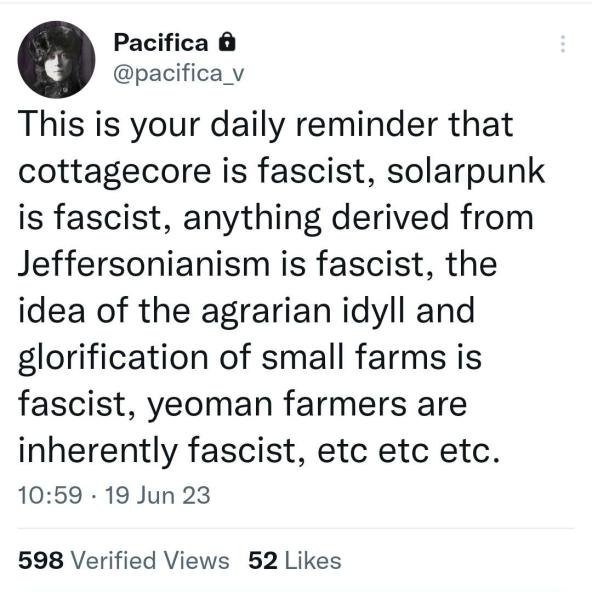
It’s a retronym, Marxist theorists in this space never unified the theories and applications of ML utilized by Fanon, Rodney, Lushaba, Wynter, etc., under a specific title. However, the revolutions in Cuba, Vietnam, and China have been Decolonial in nature and should be studied in the way they took special attention to the society of the colonized masses when constructing Socialism that would go on to challenge and defeat Colonial rule.
The basis is the refusal to start history at the time of colonization, or from the reference point of the colonizers. The context of the settler states needs to start before the settlers arrived, how they arrived and came to dominate, and understand the protracted resistance against the settlers. When understanding the structure of a particular colonization, which is really how national resources are processed and consumed, we can see the relationship between the colonizer class and the colonized.
When I say Decolonization is a reorientation of ML I mean that ML was developed to explain the need for the proletariats of Imperial nations to understand the development of Imperialism in relation to class struggle. The American MLs know they need revolutionary defeatism but they do not understand what they need to defeat and where. The struggle for gender is one of deconstructing Colonialism, the struggle for race is one of deconstructing Colonialism, the struggle for the environment is one of deconstructing Colonialism. The struggle for class is one of deconstructing Colonialism. Decolonial Marxism is Scientific Socialism that builds a society that supplants the Colonial order.









Colonizer refers to anyone involved in the entire process of expropriation of the resources of another nation, this is a national distinction, not a racial one. Colonized, or indigenous in the settler form, refers to those who’s national property in land, resources, and labor is expropriated by a colonizing nation. The American nation owns, is hegemonic over, or exercises sovereignty over, the lands of Turtle Island. The nations that rely on those resources are being pushed off of them while the resources are expropriated for the entire Settler economy, the “free gifts of nature”. So colonizer vs colonized or settler vs indigenous relates to the definite relations between national (social) groups. Colonizers have exploitative positions in consumption of expropriated resources from the colonized groups in land and labor. As in when you have super exploited national groups within a country, it means that the colonial proletariat is exchanging less labor for the same returns in the distribution of resources in the economy. The state, superstructure turned back into material, allocates expropriated resources/property/consumption for members of the colonial nation, as if it were a bourgeoisie as a whole. So why isn’t the class differences within the colonial nation the primary contradiction (or the primary class contradiction, i.e. peasant vs prole) in a settler society? Because even if the settler proletariat defeated the settler bourgeoisie, it would still maintain national differences in the means of production and ownership of yet to be utilized resources. The settlers would have to voluntarily give up their position of expropriation over the other nations, that would have to be maintained by the decolonial state apparatus, the end of American supremacy.
Yes, distinct in the way of definite social relations to production, but like the bottom of the bougies and the top of the labor, the consumption by individuals varies beyond national bounds depending on the relationship to property within each nation. Colonialism once it has subjugated competing nations converts the structure of those nations into a model that provides the most expropriated resources with the least effort, in the case of the US the Americans can either totally expropriate territory from the indigenous, taking from bougie and prole alike, or in a neo-Colonial form where the indigenous bourgeoisie allows super exploitation of their proletariat and resources by a higher power in exchange for a share of the proceeds and reinforced rule by the colonizers. This form remains dominant as indigenous territory is used for meat, lumber, oil, and mineral production (especially Uranium), while indigenous workers rarely get those jobs from the American bourgeoisie as it is reserved for the American workers. Essentially any resources claimed by the colonial bourgeoisie are also claimed by colonial proletariat, this is the fuel of reactionary nationalism within the colonial nations.